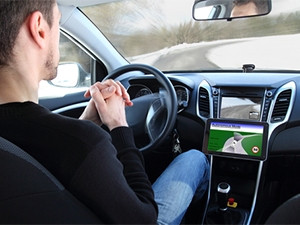
The arrival of self-driving and semi-autonomous cars is imminent and said to dramatically decrease the number of road fatalities; however, a new report shows this will not result in a decrease in insurance premiums.
The report: Autonomous vehicles will reshape the global economy by research firm Forrester states that while accidents will decrease, other factors like new car part costs and liability complexities will stagnate car insurance premiums.
Forrester says in 2015, 1.35 million people worldwide were killed due to road injuries, and the US department of transportation national highway traffic safety administration's data shows 94% of all accidents are caused by (human) driver error.
Self-driving cars promise to eliminate human error and reduce accident frequency.
However, Geico CIO Greg Kalinsky says this won't necessarily lead to a reduction in premiums: "I think that conventional wisdom makes sense, [but] I see risk as a euphemism for price. That bumper that used to cost $300 (R3 875) to replace might now cost $3 000 (R38 750)."
Forrester says it found Google's Waymo has a LiDAR sensor that will cost $7 500 (R96 876). This expense will be added to the total cost of the car. The higher cost will mean higher insurance bills.
The research firm also explained that when accidents do occur with autonomous cars, there will be complex liability investigations.
"Sensors break, software has bugs, and data networks fail. When they do, who's going to pay for the resulting damages? The developers of the driving software, the owners of the vehicle fleet, or the government controlling the automation infrastructure?
"The challenge will be figuring out which link in the chain is to be held responsible. Insurance claims will require more detailed investigations into the cause of accidents, which, along with the cost of repairing more expensive vehicles, will keep costs high," explains Forrester.
"Plus, many insurers are betting on the move to self-driving cars taking decades, not years. The tipping point in adoption won't occur until the transportation infrastructure catches up at scale and the technology is proven to be reliable. Until then, don't expect to see insurance rates declining."
Share